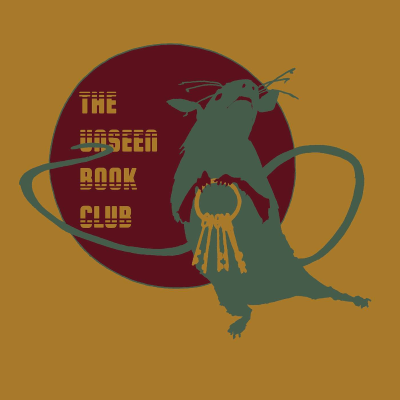
The Unseen Book Club
Englisch
Gratis en Podimo
Kostenlos hören bei Podimo
Starte jetzt und verbinde dich mit deinen Lieblingspodcaster*innen
- Vertraut von über 1 Mio. deutschen Hörer*innen
- Über 1.000 lokale Podcasts und Shows – nur bei Podimo
- Keine Zahlung nötig
Mehr The Unseen Book Club
Anarchist novels, communist poetry, uncategorizable anticolonial texts, unapologetically utopian science fiction. Close readings of stories of collective resistance and research into their contexts. A search for narratives of "we" instead of "I," observing the becoming of political subjects. A conversation between two curious non-experts and the occasional guest. It's not necessary to read the books to enjoy the show, but they're worth reading for their own sake.
Alle Folgen
35 FolgenEvent Factory by Renee Gladman
Event Factory [https://dorothyproject.com/book/renee-gladmans-event-factory/]is the first in a cycle of novellas by Renee Gladman. An unnamed linguist-traveler arrives in the city-state of Ravicka, whose inhabitants speak a uniquely place-based, relational, and physically gestural language. The narrator is on a quest for meaning, understanding, and connection, but everything, even the buildings themselves, evade her. Gladman is especially interested in language, architecture, and meaning; Event Factory echos Samuel R. Delany's Dhalgren, Italo Calvino's Invisible Cities, and Henri Lefabvre's work on the production of space. We are joined by two friends, Sirin Cucek and Auden Kotz, to explore the ever-shifting semiotic and physical landscape of Ravicka. We talk about the violence of premises, ontologies of architecture, crises without conflict, the sensory allure of salsa dancers, and the explicitly political content in this enigmatic and abstract novella.
Publishing The Commune, w/ Mitch Anzuoni of Inpatient Press
Mitch Anzuoni of Inpatient Press on discovering Marios Chakkas and finding a translator who would do justice to Chakkas’ unique voice. Review of The Commune in Jacobin Magazine [https://jacobin.com/2023/10/tragedy-greece-communism-kke-history-literature-poetry] Mikis Theodorakis' obituary in Monthly Review [https://mronline.org/2021/09/07/mikis-theodorakis-a-life-of-music-and-resistance/]
The Commune by Marios Chakkas, w/ translator Chloe Tsolakoglou
Marios Chakkas wrote The Commune in 1972 shortly before his death of cancer at the age of 41. Chakkas was a prolific Greek writer who lived through decades of hope, aspiration, repression and ultimately defeat for the country’s Left. A unique and unclassifiable novella, The Commune charts the state of Chakkas’ psyche through a dense sequence of memories, dreams, and imagined bureaucratic procedures. He reflects on his youth as communist militant during the Greek Civil War of 1946-1949, the nature of the self, individual and relational, coming to a profound and contradictory understanding of political belonging and collective memory. Having discarded the trappings and failures of political parties and society at large, he seeks communion with his fellow outcasts in his imagined eponymous commune: barely described, only gestured at. We speak with translator Chloe Tsolakoglou about 20th century Greek political history, theories of translation, texts that produce their own language of understanding, pathos and failure, and the ever-distant horizon of the commune. Inpatient Press: https://www.inpatientpress.net/ [https://www.inpatientpress.net/] Chloe Tsolakoglou: https://fridaycowgirl.com/ [https://fridaycowgirl.com/] Unseen Book Club Twitter: https://twitter.com/unseenbookclub [https://twitter.com/unseenbookclub] Instagram: https://www.instagram.com/unseenbookclub_podcast [https://www.instagram.com/unseenbookclub_podcast] Art by Eli Liebman: https://elimack.weebly.com/ [https://elimack.weebly.com/]
Almanac of the Dead by Leslie Marmon Silko
Leslie Marmon Silko, Laguna Pueblo author and prominent figure in the first of wave of the Native American Renaissance, spent ten year crafting Almanac of the Dead, published in 1991. Almanac is a sprawling, prophetic, epic novel populated by coke smugglers, arms dealers, sex workers, homeless veterans, scheming businessmen, corrupt politicians, and the people worldwide whose dreams are troubled by the fallout of the spiritual death of European descendants, or touched by the hope, however violent and tenuous, of the re-ascent of indigenous and African gods in the Americas. Much of Almanac takes place in Chiapas, Mexico, the plains of Colombia, or Los Angeles, but the story centers around Tuscon, Arizona and Lecha, a TV psychic who has given up her career and returned to the ranch of her smuggler sister Zeta, to transcribe the Almamanc of the Dead, a centuries old palimpsest of stories, memories and observations given to her by her Yaqui grandmother. Meanwhile, the colonial border societies of Arizona and Chiapas careen towards their reckoning with the disaffected and the dispossessed. We are joined by friend and scholar E Ornelas to talk about non-linear time and ‘Native Slipstream,' the solidarity through the rejection or refusal of the racial order of colonial white supremacy, prophecy and political conjunctures, indigeneity and revolutionary politics, and are continuously astounded by Leslie Marmon Silko’s mastery of narrative craft. Check out E’s band, E.T. https://e-t-music.bandcamp.com/music [https://e-t-music.bandcamp.com/music] Music of Crepusculo Negro can be heard here: https://crepusculonegro.bandcamp.com/ [https://crepusculonegro.bandcamp.com/] The lyrics accompanying the Vohlan/Blue Hummingbird on the Left split release are available on the Metal Archives https://www.metal-archives.com/albums/Volahn/Debajo_del_s%C3%ADmbolo_del_Sol [https://www.metal-archives.com/albums/Volahn/Debajo_del_s%C3%ADmbolo_del_Sol] Unseen Book Club Twitter: https://twitter.com/unseenbookclub [https://twitter.com/unseenbookclub] Instagram: https://www.instagram.com/unseenbookclub_podcast [https://www.instagram.com/unseenbookclub_podcast] Art by Eli Liebman: https://elimack.weebly.com/ [https://elimack.weebly.com/]
Montaillou: The Promised Land of Error by Emmanuel Le Roy Ladurie
Montaillou: The Promised Land of Error, by French historian Emmanuel Le Roy Ladurie, is a landmark work of social history first published in 1974. Le Roy Ladurie reconstructs the lives, relationships, and theological worldview of everyday people in the small village of Montaillou in the Pyrenees mountains at the beginning of the fourteenth century. The narratives are sourced primarily from a document known as the the Fournier Register: a collection of interrogations of common people as the Inquisition sought to root out the last strongholds of a popular heretical tendency long referred to as ‘Catharism.’ We’re joined by friend and scholar Joe Albernaz to talk about the enduring legacy of the Cathars, heretical and weird cosmologies, the nature of history, interrogation as a narrative mode, and the origins of modernity. Joe’s writings can be found here [https://columbia.academia.edu/JosephAlbernaz]. He is also on Twitter: https://twitter.com/albernaj [https://twitter.com/albernaj] For more information about the Cathars and the Albigensian Crusade, check out: This article [https://jacobin.com/2023/01/albigensian-crusade-marxist-history-feudal-power-catholic-church-capitalism-oppression]by historian Elaine Graham-Leigh, and This english translation of the Fournier Register [https://www.sjsu.edu/people/nancy.stork/jacquesfournier/] Unseen Book Club Twitter: https://twitter.com/unseenbookclub [https://twitter.com/unseenbookclub] Instagram: https://www.instagram.com/unseenbookclub_podcast [https://www.instagram.com/unseenbookclub_podcast] Art by Eli Liebman: https://elimack.weebly.com/ [https://elimack.weebly.com/]
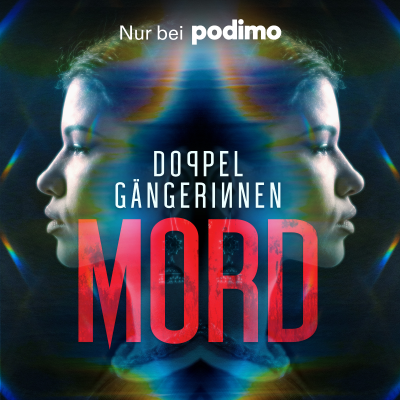




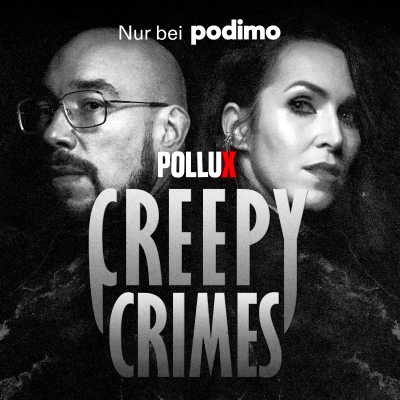

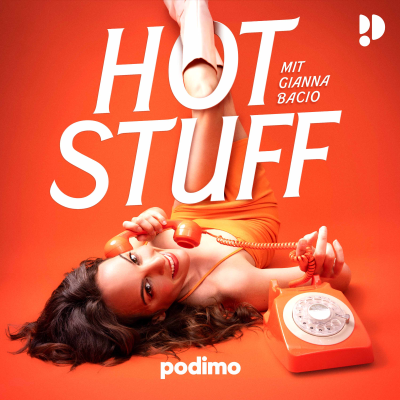











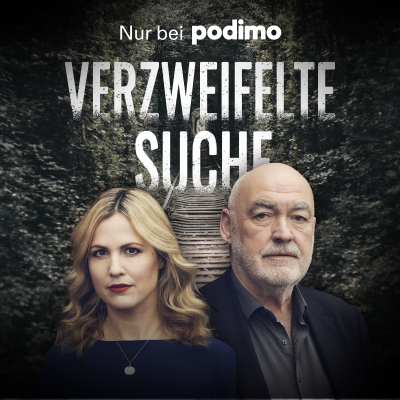



























![Schöne falsche Welt [ungekürzt]](https://cdn.podimo.com/images/94ef5516-5cad-447c-a77c-763337e12a35_400x400.png)